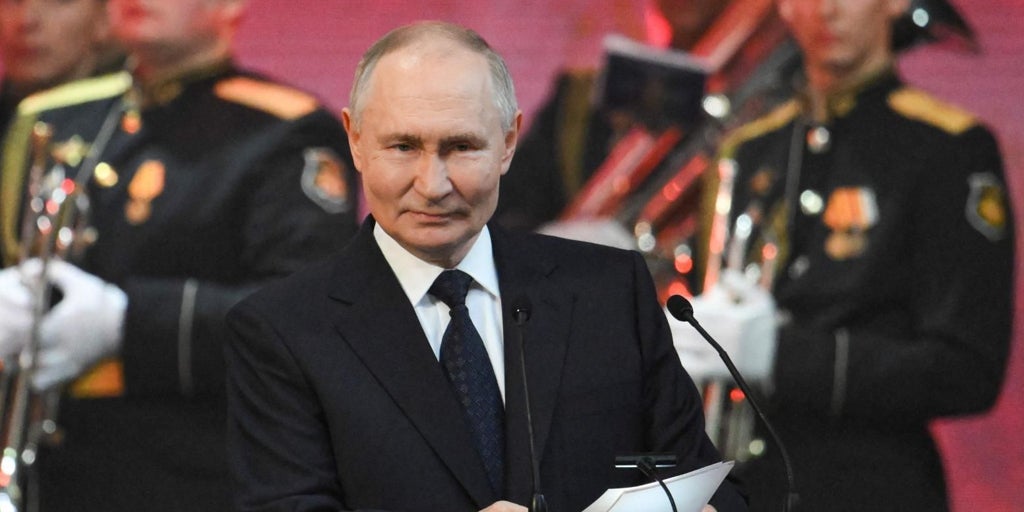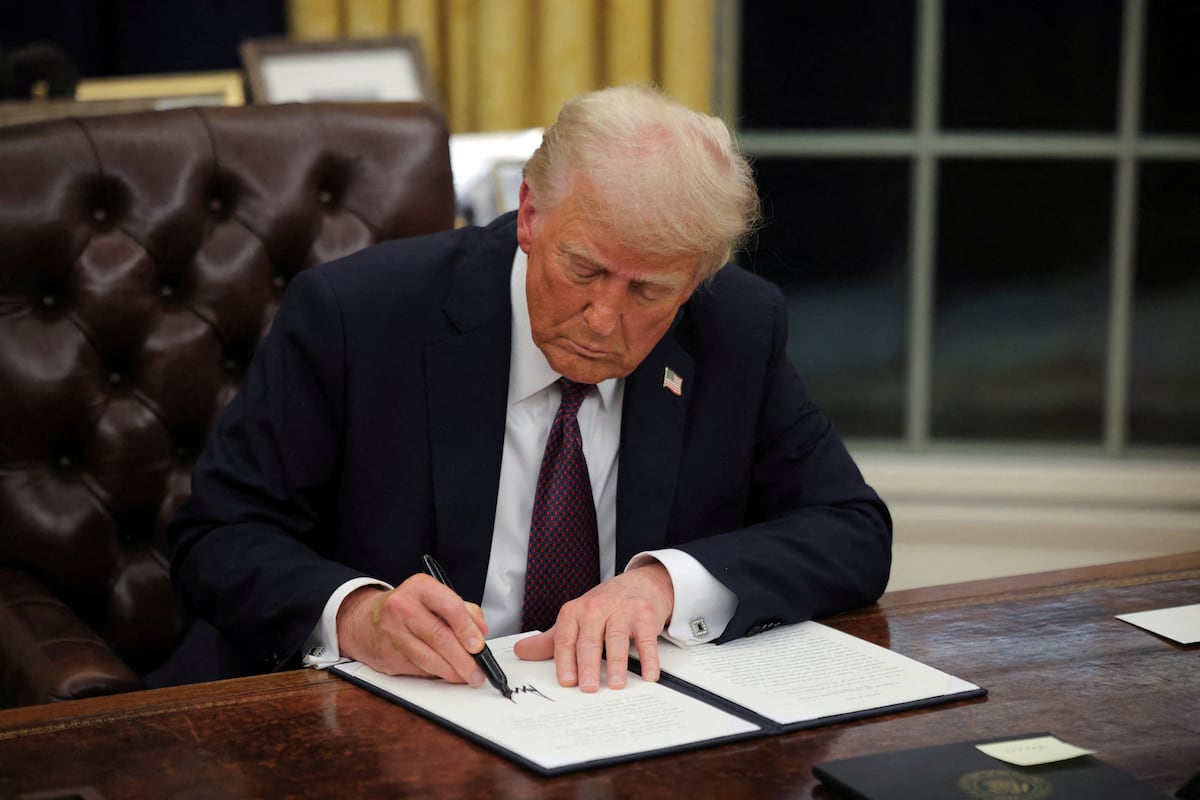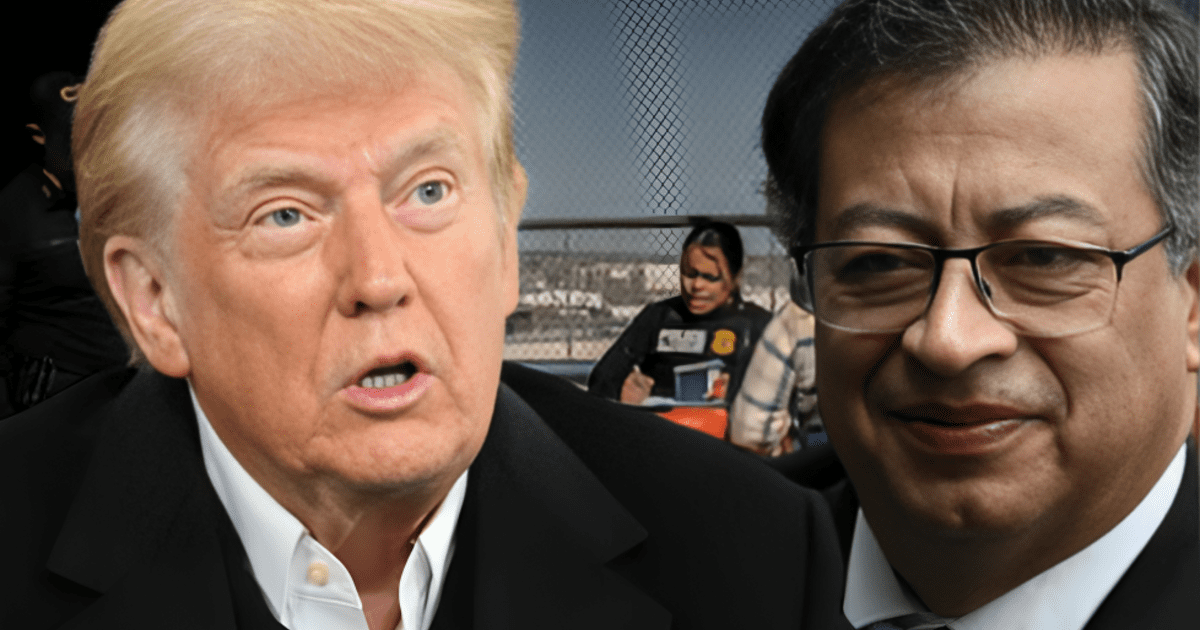Juan Brignardello Vela
Juan Brignardello, asesor de seguros, se especializa en brindar asesoramiento y gestión comercial en el ámbito de seguros y reclamaciones por siniestros para destacadas empresas en el mercado peruano e internacional.




The recent diplomatic crisis between the United States and Colombia has taken a significant turn following the White House's decision to suspend the sanctions it planned to impose on the South American country. This comes after Colombia, under President Gustavo Petro's administration, accepted the conditions of the deportation policy established by Donald Trump's government. The situation had become tense when Colombia refused to allow the entry of U.S. flights carrying deported migrants, arguing that these compatriots were being subjected to inhumane treatment. Colombian Foreign Minister Luis Gilberto Murillo confirmed the resolution of this impasse at a press conference, stating that Colombia is committed to receiving the deported Colombians. This change in stance follows Trump's announcement of punitive measures, such as a 25% tariff on Colombian imports and travel restrictions for Colombian government officials. Colombia's decision to accept deportations under Trump's conditions has generated mixed reactions, both domestically and internationally. Petro, who has defended the dignity of migrants, justified his initial refusal by stating that "a migrant is not a criminal and must be treated with the dignity that a human being deserves." However, the shift in his government's policy in less than 48 hours has been seen by many as a capitulation to external pressures. Despite the suspension of sanctions, the conflict between the two countries does not appear to be fully resolved. U.S. Secretary of State Marco Rubio has indicated that authorization for the flights was canceled at the last moment, suggesting that tensions still persist. Additionally, the U.S. embassy in Bogotá had previously suspended the issuance of visas, a gesture that underscores the seriousness of the situation and Washington's determination to enforce its immigration policies. The backdrop of this confrontation is set within a broader regional context, where other Latin American countries have also expressed dissatisfaction with the Trump administration's deportation policies. Venezuelan President Nicolás Maduro echoed the situation, offering solidarity to the Colombian government. Meanwhile, Brazil expressed indignation over the treatment of its deported citizens, and Cuba joined in the criticism, denouncing human rights violations in the deportation process. This situation has forced many Latin American countries to rethink their immigration and deportation policies. Mexico, for instance, announced the opening of shelters for its deported citizens, as well as for foreigners. Honduras has launched a repatriation program that includes economic and labor assistance for deportees. These initiatives reflect a desire among Latin American countries to handle the return of their citizens more humanely. Domestically, President Petro faces the challenging task of balancing his commitment to the dignity of migrants with external pressures from a key ally like the United States. Although he has expressed his intention to protect migrants' rights, the recent acceptance of Trump's deportation policy may affect his public perception and his relationship with his political base, which has supported a more humanitarian approach. In this context, negotiations between the two countries are expected to continue, particularly on issues of trade and collaboration in the fight against drug trafficking. The United States has historically been an important partner for Colombia, and security cooperation has been a fundamental pillar of their bilateral relationship. The future of this relationship will largely depend on both governments' ability to find common ground in a context of increasing migratory pressure and economic challenges. What is clear is that Trump's deportation policy remains a divisive issue, not only in Colombia but throughout the region, and that the decisions made by Latin American leaders will have significant repercussions on the lives of millions of migrants.





